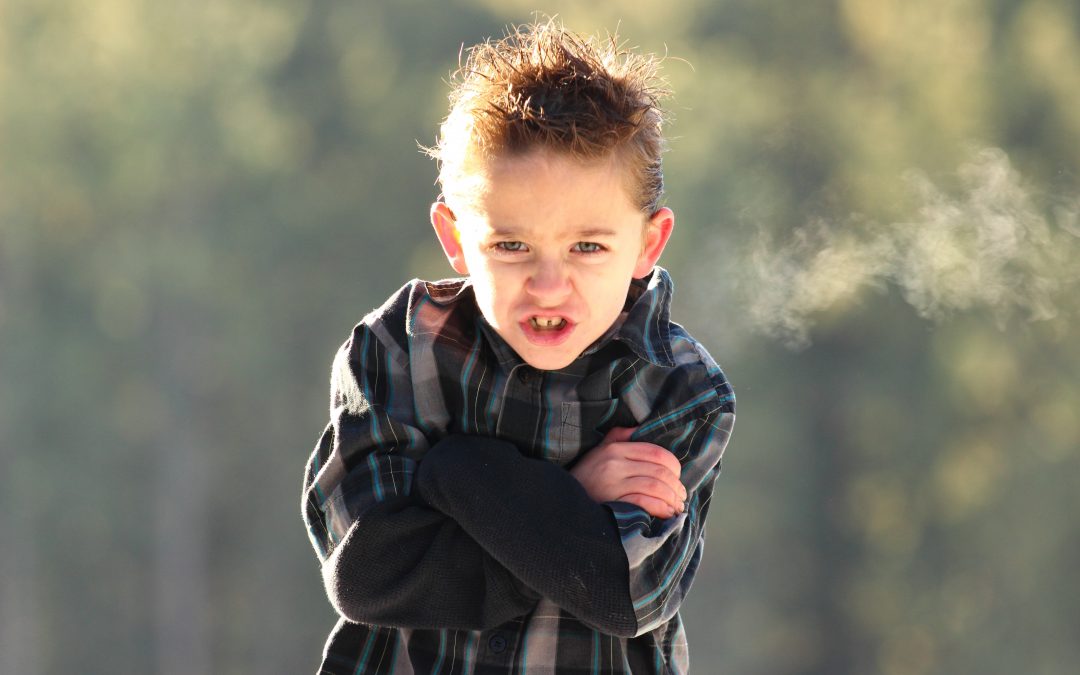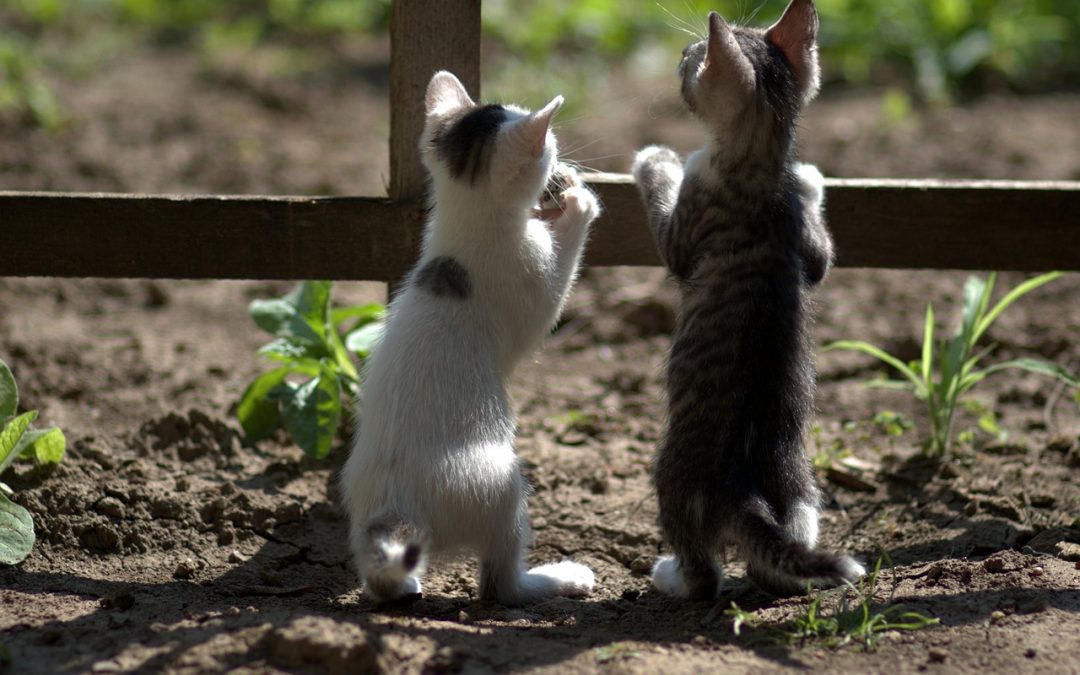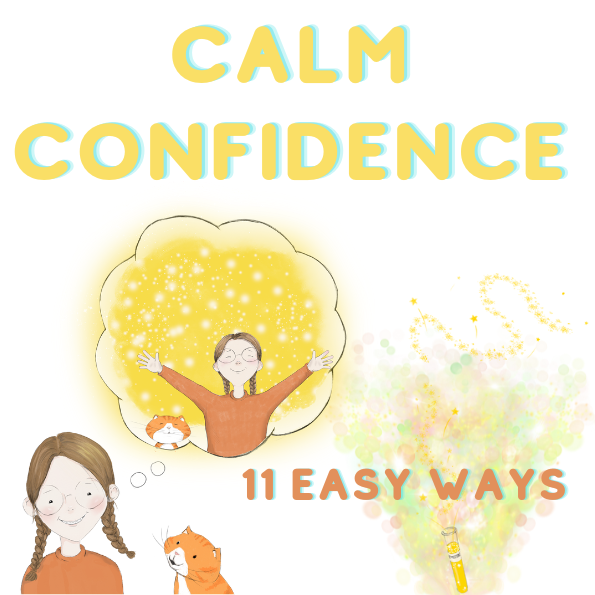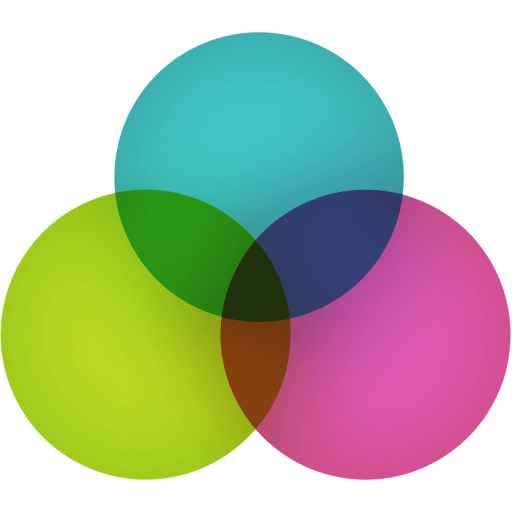
by Kay Spare Login | Nov 2, 2023 | be well, brain aim, mental health, next generation, NLP, parenting, psychology, resilience, work well, workingwithkids
Engineering The Mind
Working with young people (and their parents) means helping them understand the basics of designing a future self who is calm, confident, enjoying successful relationships, and is thankful for learning some basic secrets of happiness.
This process applies to any age!
“It is impossible to control any goal that requires other people to change.”
Case study: Lonely Lana
Moving schools had been a good decision for 14-year-old Lana but had left her yearning for her old group of pals. But her mind had played tricks on her, recalling the past in a kinder light, yet in truth, she had been quite unhappy with them. The NEW friendship group felt impermeable, and she came to see me asking for help with ‘social exclusion’.
We established that a couple of girls in the group were being really kind and friendly towards her, but this didn’t satisfy Lana and she found herself:
- Dismissive of easily available friendships.
- Keeping her sights fixed on getting attention from the big personalities.
- Negatively mind-reading the new group’s intentions.
- Negatively interpreting the body language of certain group members.
- Feeling awkward and self-conscious
- Fantasising that the old school friendship group was perfect.
We summarised our initial discussion in terms of her:
THOUGHTS – the group was unsure about her and viewed her with suspicion.
FEELINGS – self-conscious, unhappy, and awkward.
BEHAVIOUR – wanting to withdraw from the group.
Delving deeper into her thinking patterns she soon revealed some fundamental beliefs that were triggering her own unhappiness.
Trigger thoughts included:
“Making new friends is hard work and tiring”
“Why don’t they? …. (act the way I want them to act)”
“I have lost my perfect old friends”
These thoughts triggered her ‘feel-bad’ strategy.
She ran this strategy in her mind ‘on-repeat’.
Neural plasticity meant that those self-harming thoughts became automatic – because she had practiced paying attention to them.
Soon into our session, Lana realised that her true (unconscious) friendship goal had been to be the popular one amongst a large group of girls. But she didn’t yet realise that goal was impossible to achieve since it required:
- Exhausting effort to try to change the opinions and behaviours of others.
- The others to prioritise her needs above their natural ordering.
I invited her to understand that it is impossible to control any goal that requires other people to change. Trying to do that had been exhausting and frustrating, wasting energy and leading to disappointment in others and (self) generating feelings of unhappiness.
EXPLORING SOLUTIONS
I wondered if Lana could amend her friendship goal to “I want to feel relaxed and authentic around new people”. That would require her to expect nothing back from them, just to be curious and interested in the evolving relationships.
After all, a goal like this means being in charge of a goal you can actually control!
EXPERIMENT
We worked hypnotically to visualise Lana pitching up at school, looking for fun people to get to know while feeling relaxed, interested, humorous and happy. This imprinted a new neurological template which she could practise (through neural plasticity) until it became her autopilot.
FEEDBACK
We reframed her thinking so that SHE could reflect on, and positively adjust, her personal thoughts, feelings, and behaviours – it’s an inside job!
SKILLS
I taught her techniques for self-regulating wayward feelings.
FEED FORWARD
We looked through time to visit her future-self. The person who is calm, confident, enjoying a range of successful relationships, and thankful for learning some basic secrets of owning next-generation happiness.
Think this is just about children? Think again!

by Kay Spare Login | Oct 1, 2023 | kids, mental health, mind-body, next generation, NLP, parenting, parents, psychology, resilience, workingwithkids
This is a case study about using NLP with a 10-year-old who, quite simply, believed he was a ‘bad kid’ until he discovered he was much more than a his limiting belief…
Adrian was one of the first kids in Class 5 to catch my attention during a Happy Brain™ delivery day. He displayed unruly behaviour, shouting out and generally disagreeing with everyone and anything. Physically, he was loose-toned in his movements with his head tilted off towards his left shoulder; he seemed to have little control over his physiology yet was quite tense. Verbally, he was quick and articulate for his age, though his vocabulary was negative and reactive. Emotionally, he seemed upset, defensive/offensive, and unable to deal with any perceived unfairness during the day and he seemed to be hurting.
Sometimes, when faced with a prevailing attitude of ‘I can’t do this, that, or anything, and I don’t like this, that, or anything’, it helps to change the objector’s focus of attention by enlisting their cooperation. So, I asked Adrian to help me demonstrate an activity in our Calm Confidence Kit; Power Up.
He stood at the front of the class and did the opposite of everything I asked of him. I joked about his polarity response and moved on. “Thank you, Adrian, you can sit down now” as I gestured for him to join the seated class. He sat down on the very spot he had been standing “Well you said sit down,” he challenged, with a literal interpretation of my instruction. Note: I suspected this was his behavioural stance rather than true literal interpretation, which of course some children do make.
“He used to be fine, until Year 2,” confided the teacher during lunch break. “Something seemed to change around that time, and he has become a very naughty boy.” I made a mental note that the teacher had labelled the child’s identity as naughty – rather than specific behaviours – which didn’t give the child anywhere positive to go. Behaviours can be modified whereas identity labels tend to hold people stuck.
After lunch, the final Happy Brain™ activity was to have the children visualise what the inside of their smart-thinking, happy brains might look like. This exercise is metaphoric, creative, expressive, and designed to celebrate difference and uniqueness. Once a clear image, sound or feeling was imagined, the children each began drawing their personalised Happy Brain, and the class soon got busy with colours, shapes, patterns, words, and illustrations. As a generalised observation of this exercise to date, I have often noted that girls seem more inclined to draw pastel-coloured hearts inside their imaginary brains, with special compartments for friendship and love. Whereas boys tend to favour drawing pulleys, levers and use more primary colours.
Adrian drew a spiky mark around the top and outer edges of his brain template and then sat back in his chair, crossed his arms, and announced, “I can’t do this.”
Finding my first opportunity to work one-to-one with him, I pulled up a chair and sat alongside him.
We chatted about his ‘brain’ through the lens of me being a mind coach. I was curious, interested, and I gently began to lead his attention using NLP Milton Model language, which focuses on useful suggestions. “What, until now, has stopped you drawing your happy brain?” I asked.
That powerful phrase, ‘until now’, seemed to work, as he appeared deep in thought for a moment before revealing a nugget of key information:
“I have the devil inside me,” he replied.
Note: Many parents, teachers, adults, or friends would at this point, tell him not to be silly or that he was wrong. Others may even agree with him. In fact, you might observe your own response to that statement. But I did not pay so much attention to the fierce words because staying within his reality was key. Adrian was simply expressing a limiting belief. “Cooool,” I said, as he gave me a look of suspicion. “So where, on the paper, will you draw that little red guy?”
Now at this stage, I most wanted to validate his narrative and belief to stay in rapport, but at the same time I used magical Milton Model language to begin to trick his mind. “That little red guy” did the trick. The word ‘that’ is such a simple way to dissociate someone from an unhelpful picture inside their mind’s eye and conversely, we can move mind-pictures closer by saying ‘this’.
And by replacing the word ‘devil’ with ‘little – red – guy’ and using a matter-of-fact intonation, I began to unlock his potential to be free from his scary and limiting imagination.
Suddenly, Adrian jolted forward into full drawing mode, released from whatever thoughts had been holding him stuck. Note: Sometimes, to change the emotional state of the person feeling helpless or stuck, all we need to do is give their mind somewhere new to explore.
For the first time that day, he had become focused and on-task. Soon a red, devil-like figure began to emerge on the paper in front of him. His illustration included a pitchfork, a black cloud, rain, and lightning!
He sat back and gave me a confused look that seemed to ask a question and answer a fear simultaneously. “I told you so…”
“But where is the balancer?” I asked, explaining some basic physics about opposing parts. More language magic – my statement left no room for him to disagree because it not only ‘presupposed’ there was a balancer, but it was also backed up by science. I waited until his eyes stopped moving around (we call these ‘eye-accessing cues’) as he was searching inside his mind for ‘the balancer’.
He found it!
“A golden angel,” he said, “with golden sunshine beaming down”.
And at that very moment his little face illuminated, as I gently touched his left shoulder (closest to me), smiled, and made a strong sound of ‘wowwwwwwww’ (this multi-sensory anchoring provided his nervous system with a kinaesthetic message that associated his happy feelings and happy thoughts, to my touch and sound. I wanted to anchor this moment of delight because Adrian had discovered something that had previously escaped his awareness. Effortlessly, with great focus, care, and attention, he drew his ‘balancer’.
Together we admired the two equal-sized compartments of balance inside his imagination now expressed on the paper in front of him.
“Didn’t you know?” I asked in a surprised voice while pointing to his picture “most people have occasionally had a thought just like that one you had about the little red guy? Thank goodness you have discovered this golden angel!
My voice carried words in a dissociated past tense when referring to ‘that’ little red guy (devil) and into associated present/future for ‘this’ golden angel.
At last Adrian appeared much calmer and less tense and for the first time all day, he offered a positive contribution. “Can I show my drawing to the class?”
As the day came to its end, the class assembled on the mat, all holding their wonderful and various Happy Brain drawings for a class photo, Adrian stood up as my first ‘sharer’. Quietly and methodically, he began to describe the imagined workings of his mind, and as he did this, I gently re-touched the ‘anchor’ on his left shoulder and repeated the ‘wowwwwwwww’ in the same tone as I’d previously used. Just to remind his nervous system of the good feelings we had previously associated to the delight of discovering his golden angel.
The children and teachers listened intently as he described how he had felt opposing parts inside his brain – a devil and an angel. He was finally connecting to his social group by being seen and heard – this time in a positive way.
I asked the class: “Put your hand up if you have ever experienced something just like that little red guy [pointing to the devil on the paper] inside your mind” and as a sea of hands rose in front of us, including that of the class teacher. Adrian’s face flushed into a beaming smile. I suspect that until that moment, he had believed he was alone in his tormenting beliefs related to that little red guy.
We chatted as a whole group about the importance of looking for ‘balancers’ inside our heads. “How many of you can ride a bike?” I asked for class involvement through a show of hands. “Because you’ll fall off if you stop peddling, won’t you? So, we must keep going to find balance – just like Adrian did, even when he didn’t feel happy. He kept going until he found a happier balance!” The children all seemed to understand the metaphor. “And how many of you could ride a bike when you were aged two?” No hands were raised “So how did you get good at peddling and balancing?”
“Practice!” They called in chorus.
“Good point,” I said, “because whatever you practise, you get good at. So, let’s practise looking for Happy Brain balancers inside our minds, shall we?” A resounding ‘yes’ was the reply.
To conclude the day’s activities, I helped the children relax with Balloon Breathing and Body Balance (two activities from our Calm Confidence Kit) and then asked them to imagine floating forward through time to visit their future selves two weeks from now. I future-paced their attention by asking: “How much smarter and happier have you already become because of the two whole weeks you have been practising Balloon Breathing and Body Balance AND looking for Happy Brain balancers?”
Adrian was now sat upright, symmetrical, centred and smiling – so much happier than he had been earlier that day. Of course, in this situation, I didn’t get to influence the systems he lives within – home, school, family, friends, etc. But I did get to challenge a limiting belief that had been holding his identity stuck.
Please let us know which parts of this case study resonate most with you!

by Kay Spare Login | Aug 3, 2023 | mental health, next generation, parenting, resilience, workingwithkids
Joel has a diagnosis of Asperger’s, and although he was 14 years old at this time, his academic and social assessments placed him at around 12 years of age.
When they contacted me, Joel’s parents were fearing the worst. Their imaginations were catastrophising a future where their deviant, misogynist adult son had a bizarre sexual fetish.
Despite having confiscated his phone, blocked his access to the Internet, and withdrawn privileges, the parents discovered he easily found new ways around the sanctions. It was like he was obsessed. Fortunately, I had worked with this family before and so it was easy to quickly calm the mum and introduce some ‘possibility’ into her thinking.
“It is possible, isn’t it – that Joel’s brain could make new connections and break old ones?” I probed.
“Please, just hypnotise him!” Joel’s mum said.
But he appeared quite hypnotised already and I had some investigation and calibration to be getting on with.
Shortly after Joel arrived to see me, he and I, and my dog Oscar soon settled into a Happy Brain game of super galactic space hoppers just like snakes and ladders. Whilst we did not include Oscar in our battle to win the prize of ‘sitting in the massage chair’ we did rely on him as a mood setter; a furry friend to pat, stroke, and generally induce happy feelings (people make better decisions when they are feeling good).
Playing hard to win is not only fun inducing, it also re-directs attention, setting up positive neurochemistry (dopamine and acetylcholine are released when there is chance/novelty involved), thus encouraging whole brain activity.
The rules of the game that we agreed:
- Landing on a star = tell the other person (or Oscar the dog) something that bothers you.
- Landing on a spaceship = ask me (or Oscar the dog) something you’d like to know more about.
Note: For many children and young people (particularly on the ASD spectrum), talking to a dog feels easier than talking to a human.
Fun exchanges of ‘ask and tell’ were many and varied; until Joel suddenly announced his ‘problems of growing up’ and how he wished he was 11 or 12 again because his life was now ruined!
“Ruined?” I exclaimed.
“Yes, ruined”
“Oh no, Oscar, Joel’s life is ruined.” I involved the dog to add a dissociated layer of communication that decreased the intensity of emotion.
Joel began to look anxious; fidgeting and his breathing quickened. I projected what I was seeing onto the dog: “Oscar looks a little upset at the idea your life is ruined Joel – so before we carry on, will you remind him how to do Balloon Breathing and calm him down?”
Balloon Breathing is an activity from our Happy Brain Calm Confidence Kit; a breathing technique that de-activates the sympathetic nervous system and brings a sense of calm. I held Oscar on my lap, exaggerating his rib expansion to pace Joel’s breathing. Slowly I reduced the speed of the rib movement to lead Joel’s subconscious mind/body into a calmer state.
The ‘pattern interrupt’ worked and Joel’s state was now calmer. “Sorry Joel, I didn’t mean to interrupt you, but thank you for helping Oscar – you were telling us that your life was ruined. That sounds horrid, how come?”
“Because of the videos I am possessed by.” He sighed, sounding resigned to believing this as a truth.
Note: ‘Possessed’ seemed a suitable word as he went on to describe his nightmares and worries. He really was at an impasse.
Taking this information (his reality) at face value, without judgement, interpretation, or emotional reaction, I began to dig for more information. (The NLP Meta Model provides a superb structure for gathering good quality information, especially when the questions are ‘softened’ with Milton language.)
Still playing the board game – as a pace keeper – Joel gradually articulated several parts to the problem, as he perceived it:
- His life was ruined due to being barred from using the Internet.
- His parents would never trust him again.
- Since his mind got infected 2 years ago, he felt terrified and had nightmares.
Whilst it is rarely necessary for us to know the ‘content’ of a problem when utilising NLP, on this occasion I decided to investigate whatever it was that had infected, possessed, and apparently ruined his life.
The ‘inappropriate content’ he had found himself attached to turned out to be a series of YouTube videos of middle-aged men catching pretty young girls and then ‘wrapping’ them in duct tape, in a kidnap-like manner.
“How did you find this video Joel?” I asked, in a matter-of-fact voice.
He replied,” I just love rap music.”
Wow, instantly my mind exploded a whole new set of possibilities once I heard the ambiguity (wrap/rap). And sure enough, it soon transpired that the lad had quite innocently been looking up RAP videos on the Internet when inadvertently he had discovered WRAP threads of a different nature. And, in addition to wrap/rap, another YouTube music channel where his favourite Doctor Who theme could be found was called Warp Zone.
Rap-Wrap-Warp …
Now I was beginning to make some sense of the jigsaw pieces that had, until now, mis-joined into some crazy-like picture.
The mystery continued to unravel as Joel explained that 2 years previously, when he was around 12 years old and searching for rap music videos on YouTube, he had accidently discovered the inappropriate videos of pretty girls being wrapped and bound. Paralysed by the imagery and terrified by the idea that this was what all adults did, he kept watching, trying to make some sense of it all.
He started looking for clues in other similar videos and very quickly began having nightmares, that he would have to wrap up someone or be wrapped up himself.
Incidentally, his mum had previously reported that all Sellotape in the house seemed to disappear no sooner than she would buy some – Joel confessed to binning it in terror!
Caught in a loop, Joel’s disgust and fear of violence and kidnapping served to reinstate his very gentle nature and real fear of growing up – if this was what was to come. His wholesome values were now being compromised, not least by the fact that some of those girls had pretty faces that stirred a feeling of adolescent ‘attraction’.
The consequence for having been caught was both devastation at not being able to watch YouTube music, and yet also great relief. “At least I’m away from it all now,” he sighed. What an impasse; remorse, guilt, and sadness for having disappointed his parents. “I’ve made a terrible mistake,” he whispered.
I made the following observations to myself:
- Joel was able to express normal adolescent feelings of attraction towards females (e.g., a girl on the school bus).
- Joel showed no misogynist tendencies.
- He had become traumatically spellbound by the videos.
- He was very upset by the consequences of his actions.
- Joel described his brain being ‘infected’ by what he has been watching.
- He believed he was not trustworthy enough to prevent it happening again.
So, we continued playing ‘ask and tell’ board games which enabled me to gradually explain to him how those videos were not part of a ‘normal’ adulthood and yet it was true that some people made strange and disturbing videos, sometimes to shock or scare or even get money from the vulnerable.
I began offering reassurance that his worst nightmares were truly unfounded while checking that he would now like to be free of those images that haunted the inside of his mind. Reflecting Joel’s language of ‘being infected’ was a great place to start the process of change and we explored our respective experiences of computers being infected with viruses. And how easy it was these days to have the infection/virus wiped clean. He knew this was easily done. “Fortunately,” I explained, “I know some fun and easy ways to wipe clean ‘mind infections.’
We proceeded through a series of activities to dispel the images of ‘those’ movies (including nightmares) using a process based on NLP submodality change-work. Once I had found the ‘codes’ to the way in which Joel’s horrible memories were stored it was easy to neurologically re-pattern them. His coding was strongly visual-kinaesthetic.
After some more Balloon Breathing to enhance access to his subconscious mind resources, I asked Joel to close his eyes and ‘imagineer’ a master control centre inside his mind. Now as a Star Wars fan, he modelled his personal control centre like a Jedi spaceship, where he could pull levers, fire buttons, and have surround-sound screens, speakers, and a swivel chair.
I then had Joel recall a ‘wrapping’ memory that he didn’t like too much. Not too strong a stress response for his first attempt, as I was still teaching him how to use the power controls inside his brain.
Placing the image on the surround screen of his Jedi spaceship, Joel’s mind’s eye found the button that froze the moving image, still.
Pulling a red level, he had the picture ‘splat’ against the windscreen of his spaceship, like a parking ticket on his dad’s car.
Now he could switch on the windscreen wipers as he watched and heard the disintegration of the picture. “That was easy,” he said.
We continued to play inside his imagination, recalling image after image, some on screens inside his spaceship and other as targets on the enemy ships.
One by one, the images were made clear, then destroyed through a series of explosions, shrinking, fading, smashing; all, with powerful sound effects and a strong feeling of being in control.
This process of neurological repatterning feels quite magical at any age, and Joel was indeed flabbergasted when I asked him to recall those old scary images (note the past tense); nope, they were gone and replaced by a blank screen. Successful anti-virus clean-up.
I wondered if his mind could now create an anti-virus app that could place any future scary mind images onto a screen in his mind’s eye, before wiping them away, or, whether his control centre knew just what to do if any scary images ever emerged at any time in the future. This was both a double bind (illusion of choice) and future pacing a certainty that he would be able to drive away scary images.
I then asked him to teach Oscar how to do this, just to be sure Oscar would never frighten himself with things he didn’t understand. This ‘teaching’ process embedded Joel’s new learning.
Expanding Joel’s personal sense of pride was my chosen antidote to his feelings of not being trustworthy and he seemed pleased to consider the possibility that the more he focused on this positive feeling, the more he would gain the trust of his parents. I helped Joel access and describe his neurological sensations of feeling pride: moving around his heart in a clockwise direction, and bright orange in colour.
These were easy submodalities to enhance through Spinning Feelings and Chair (colour) of Confidence – more activities from our Happy Brain Calm Confidence kit.
My change work with Joel was soon over, as he couldn’t find a way to scare himself or feel bad. He was ready to be allowed to move on, but it was vital to set up a system that supported and reinforced the change.
Family coaching followed, which included signposting them to the Rosenthal Experiment, where children were measured in a classroom, performing to the level of expectation of the adults around them.
Family coaching guide:
- Act ‘as if’ it is all over and allow him the space to move through this change so that the negativity does not become re-anchored. This must be his bio-feedback.
- Language must include presuppositions:
“When parental controls are reinstated …”
“Once he has regained your trust…”
- Avoid using words like ‘self-control’ which suggests there is something to be controlled, or something that could get out of control.
- Focus attention towards feeling proud and growing up nicely or being more like Dad (hero). Clear brain aim …
- Build up self-esteem by helping him find his own evidence that he can make good decisions.
- Keep him moving towards feeling proud, open, honest, etc. rather than have him moving away from feeling naughty, helpless, etc.
- Trust him.
Several years later when asking the family permission to use this case study, Joel’s mum said: “Oh my, I had forgotten all about that horrible time.”

by Kay Cooke | Apr 1, 2023 | be well, mental health, mind-body, neurology, next generation, NLP, parenting, parents, psychology, resilience, workingwithkids
“I’m bored.”
Means “I don’t know what to do”?
Which implies “I need to know what to do”?
And therefore “please help me to avoid this feeling of uncertainty.”
TIME is the commodity and EMOTION is the currency; when we have time, we want to fill it will good feelings. And we can.
Yet a cruel outcome of fast-fix good feelings is ‘learned helplessness (“I’m bored – fix my feelings”)’ nourished by passive feel-goods like TV, social media, sugar, alcohol …
Phew!
Anxiety is dissolved by passive feel-goods. But not for long because we never resolve the nagging feeling that we dislike ‘that boredom space’.
Such a shame!
So many people feeling miserable and trapped within the solutions of quick-fixing profiteers.
Because!
Our brains are so easily trained, wired and re-wired.
Rewired by passive learning (the less aware we are of the boredom programming, the easier the acceptance).
Rewired by active learning and creative engagement with boredom to experience new and novel handling of uncertainty:
problem solving – how will I make that old sofa more comfortable?
creation – what kind of meal can I make out of these ingredients?
imagination – what will my garden look like if I dig up the flower bed?
experimentation – which windowsill has best suited my house plant?
exploration – let’s visit that woodland walk I heard about.
discovery – which food upset my digestion?
role play – how does it feel to pretend to be like my favourite calm person?
learning – which thoughts motivate me most?
Boredom!
Provides training ground for THRIVING through adapting and adjusting to difficulties and disappointments. Thriving brains know more conscious CHOICES.
Boredom!
Also provides training ground for SURVIVING through having our attention controlled by someone else. Surviving brains revert to auto-pilot and can’t make conscious choices.
Boredom!
Is a curious description of a state of human consciousness where there is space to be trained into helplessness and survival behaviour, or it is a space to build resourcefulness and resilience for a thriving future.
Thrive!
Let your children – and your own inner child – handle boredom actively …

by Kay Cooke | Jan 30, 2023 | next generation
Created in 2010, these fun, easy to follow brain training activities are ideal for young families and primary classrooms.
Instant Calm – Belly Breathing
Quietly Clear – Building Confidence
Brainy learning – Balance Body & Mind
Brain balance – Finger Play
Personal power – Heartful
Choose feelings – Spinning Feelings
Perfect peacefulness – White Feather
Brain boost – Eyes Around
Chaos to calm – Glitter Ball
Power up – Power Pack
Reassure an anxious mind – Finger Chat
Welcome to these practical activities that help you minimise stress and create feelings of calm and confidence. You will find increased self-esteem
and smarter thinking are very pleasant by-products.
This kit will train your nervous system to be calmer and to stay calm and confident in challenging situations. Practising them regularly will mean that you’ll get better at being able to do them whenever you really need to.
There are 11 fun activities for you to experiment with, each one is proven to help develop resilience. CLICK HERE

by Kay Cooke | Aug 30, 2022 | next generation, NLP, parenting, work well
Looking for a fun ice-breaker, pattern interrupt, or warm-up for your team of colleagues or students? Or a new idea for having fun and making people smile? Here’s a game you can play with your students, colleagues, coachees, or family. It has scope to be as purposeful as you choose!
This game involves letters of the alphabet A-Z, some pens, some paper or flip chart, or white board. It can be done individually or in groups and you can even add some flavoursome competition.
Choose one of the themes below and assign a word to each letter.
Theme 1: Positive/happy/fun words e.g. amazing, brilliant, cuddly …
Theme 2: Nouns (things) e.g. apple, bat, crib …
Theme 3: Verbs (actions) e.g. admiring, bowling, crocheting …
Theme 4: Nonsensical (made up) brain ticklers e.g. artummyful, brainbutt, crumtonly…
Theme 6: NLP nominalisations e.g. adoration, bliss, confidence …
Theme 7: Colours e.g. apple-green, baby-blue, crimson …
Or make up your own theme!
Or create a themed word-bank somewhere prominent where people can keep adding new words.
This is play, with purpose. For example, that purpose might be to:
• have fun
• engage with others
• embed learning
• calibrate people or situations
• …
#NLP #calibration #language #play #happybrain #fun #states #NLP submodalities #icebreaker #braintickle #trainingroom #teamtalk








Recent Comments